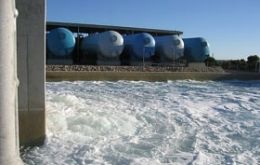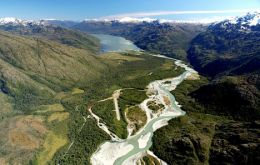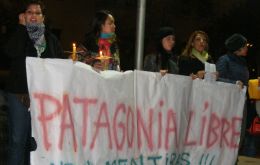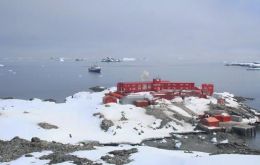MercoPress. South Atlantic News Agency
Environment
-
Tuesday, May 31st 2011 - 08:18 UTC
Germany plans to shut all nuclear reactors by 2022 and double renewable energy to 35%

Germany plans to shut all nuclear reactors by 2022, Chancellor Angela Merkel's ruling coalition announced Monday, in a policy reversal drawn up in a rush after the Fukushima disaster in Japan.
-
Monday, May 30th 2011 - 00:41 UTC
“Fish pedicure” in the UK fuels health and animal welfare concerns

One of the fastest-growing beauty treatments in Britain, fish pedicures – during which tiny toothless carp smooth down feet by eating dead skin – has come under new scrutiny from health experts and animal rights campaigners, reports the Sunday UK media.
-
Friday, May 27th 2011 - 08:16 UTC
South Georgia marine biodiversity richer than the Galapagos Islands

Sea spiders the size of dinner plates and two-meter-long ribbon worms that eat prey several times their own size were among the 1,400-plus species cataloged by the British Antarctic Service in a comprehensive study of marine life around South Georgia Island.
-
Friday, May 27th 2011 - 02:00 UTC
OIE declares the world free of rinderpest, one of the deadliest cattle diseases

The World Organization for Animal Health (OIE) declared rinderpest, one of the deadliest diseases of cattle and of several other animal species, eradicated from the surface of the earth.
-
Wednesday, May 25th 2011 - 06:50 UTC
Israel desalination plant will provide 20% of the country’s households water needs

Israel's Finance Ministry has approved funding for the construction of the largest water desalination plant in the world. Under construction in Sorek, central Israel, the plant is scheduled to be completed in 2013 at a cost of 400 million US dollars.
-
Wednesday, May 25th 2011 - 06:44 UTC
Brazil plans to invest heavily in wind farms natural gas fired plants

Brazil which gets about 80% of its energy from hydroelectricity is considering a record investment of 4.1 billion Real (2.5 billion USD) for wind farms this year to diversify its power supply.
-
Tuesday, May 24th 2011 - 22:04 UTC
New York Times says sacrificing Chilean Patagonia for a power is an irreparable mistake

The New York Times has joined the Aysén region project controversy in Chilean Patagonia which was recently approved but has triggered massive protests from environmentalists and an overwhelming rejection from the majority of the population according to public opinion polls.
-
Tuesday, May 24th 2011 - 06:30 UTC
Massive demonstrations in Chile to protest Piñera’s annual speech to Congress

Citizens protested on the streets of 27 Chilean cities on Saturday. The demonstrations were strategically planned to coincide with President Sebastián Piñera’s annual May 21 speech. In many areas, peaceful demonstrations morphed into violent riots.
-
Tuesday, May 24th 2011 - 06:02 UTC
Global sea level projected to rise by one metre by 2100, says Australian report

The Australian Climate Commission has warned that acceleration of sea level-rise will be faster than anticipated. Global sea level is projected to rise by one meter by 2100, according to the Commission's first report published on Monday.
-
Monday, May 23rd 2011 - 00:09 UTC
Argentina and Chile organize winter land SAR operation in Antarctica

Argentina and Chile Antarctic organizations are planning this year’s edition of the Search and Rescue training operation which is scheduled to take place sometime between August and September in the Antarctic Peninsula
